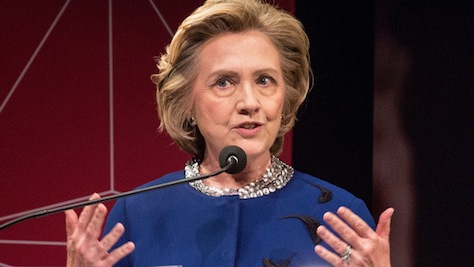Over the weekend, US president Barack Obama gave a wide-ranging interview on foreign policy with New York Times columnist Thomas Friedman. ![]()
But it’s the interview that The Atlantic‘s Jeffrey Goldberg conducted with former US secretary of state Hillary Rodham Clinton that’s garnered much more attention. With Clinton leading polls for both the Democratic presidential nomination and general election in 2016, her interview was widely viewed as creating space between her own views on US foreign policy and those of the current president, who defeated her in 2008 for the Democratic nomination before appointing her as the top US diplomat in the first term of his presidential administration.
The most controversial comment seems to be Clinton’s criticism that the Obama administration’s mantra of ‘don’t do stupid shit‘ isn’t what Clinton calls an ‘organizing principle’ for the foreign policy of any country, let alone a country as important as the United States.
The headline in the The New York Times? ‘Attacking Obama policy, Hillary Clinton exposes different world views.’
Chris Cillizza at The Washington Post endeavored to explain ‘What Hillary Clinton was doing by slamming President Obama’s foreign policy.’
The Clinton ‘slam,’ though, is somewhat overrated. She admits in virtually the same breath that she believes Obama is thoughtful and incredibly smart, adding that ‘don’t do stupid stuff’ is more of a political message than Obama’s worldview. For the record, Clinton claims that her own organizing principles are ‘peace, progress and prosperity,’ which might be even more maddeningly vague than ‘don’t do stupid stuff.’ After all, who’s against peace, progress or prosperity? Even if ‘don’t do stupid shit’ is political shorthand, and even if you don’t believe that the Obama administration’s foreign policy has been particularly successful, it’s political shorthand that represents a sophisticated worldview about the respective strengths and limits of US foreign policy.
In any event, there’s an awful lot to unpack from the Clinton interview, both on the surface and from reading between the lines. You should read the whole thing, but in the meanwhile, here are six things that struck me from the interview about Clinton and what her presidential administration might mean for US foreign policy. Continue reading Six important points from Clinton’s foreign policy interview
